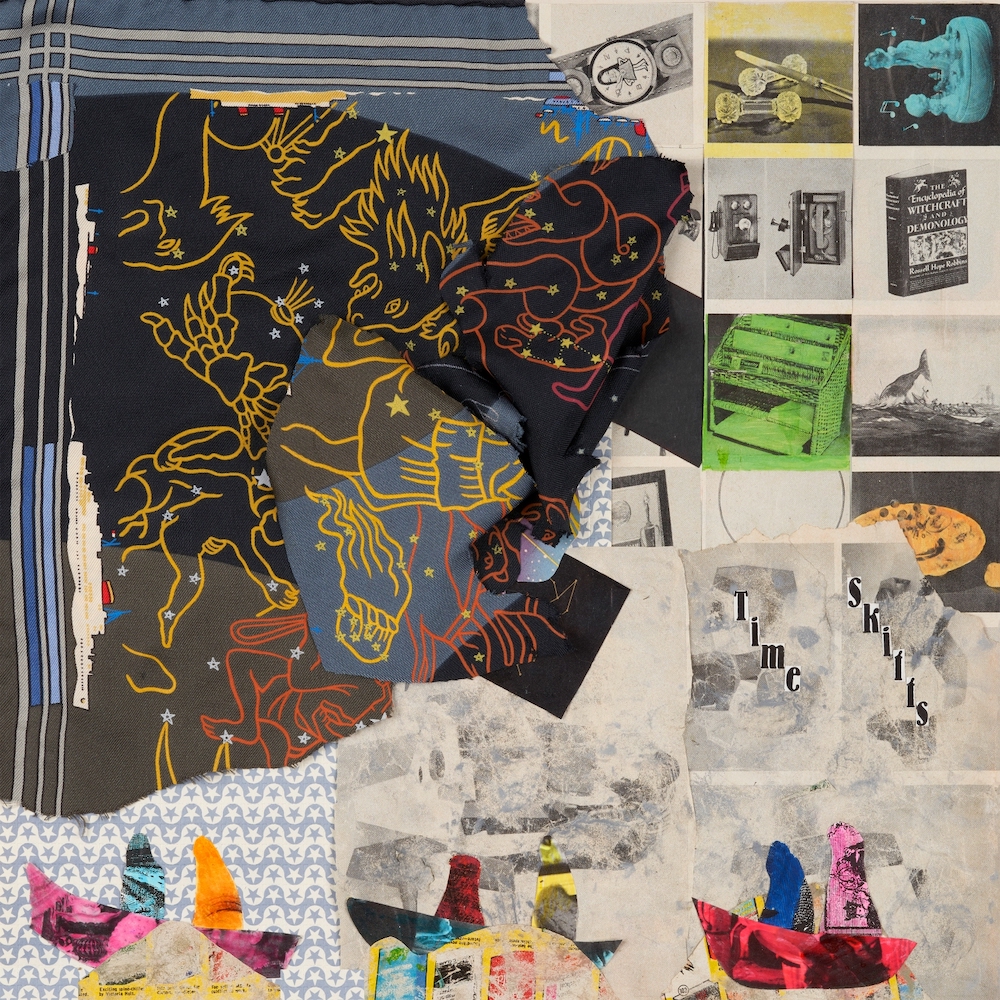Something strange happened in the early years of the last decade. Around 2012/2013, critics all of a sudden seemed to agree unanimously that the new output by an entire generation of American underground artists – which they were previously greatly in favour of – kind of sucked. Looking back, it’s almost absurd that records like Deerhunter’s Monomania, Liars’ Wixiw and Animal Collective‘s Centipede Hz were criticized as if they were a product of decadent rockstar maladie and had to face absurd non-insights such as “there are no songs on this album.” Instead of reading these records – which are all incredibly dark and personal works – as part of a larger history of their makers, they were offhandedly dismissed as ‘lesser’, shifting the respective careers of their makers in the process.
In the case of Animal Collective, that shift was especially palpable. After delivering a decade worth of incredible psychedelic pop (actually psychedelic, not H&M-psychedelic) and ending the 00s with the career high duo and ‘greatest albums of all time’-contenders of Strawberry Jam and Merriweather Post Pavilion, they all of a sudden faced an uphill battle. Time has been forgiving to Centipede Hz and its follow up Painting With: now, it’s very clear the former is the band’s most punk album, while the latter was a joyful embrace of the all-permeating rap and electronic dance trends governing the mainstream of that era.
Neither seemed like definitive statements, which is strange, but maybe explains why, in the last decade, the true masterpieces associated with the group came as solo outings. Deakin’s Sleep Cycle, Avey Tare’s Cows on Hourglass Pond and Panda Bear’s Tomboy are as good as any of the band’s collective standouts. It was just a matter of time before the band could find the right angle to bring their detractors back into the fold.
The band’s 11th album Time Skiffs marks a change of pace. Where the last decade of Animal Collective’s work was marked by ambient excursions and dark electronic shades, their new album strips away the sludge and junk to reveal moss and creeks. It’s a return to the band’s roots, in the most biological sense possible. The clear, nuanced reliance on instruments and relaxed atmosphere frames it as Animal Collective’s Unplugged album, while its aesthetics and melodic beauty returns to the underrated early masterwork Danse Manatee. Time Skiffs retains the playful marimbas and halcyon glow of the Manatee era, but, where that album felt like This Heat on LSD, this one removes the noise. Instead, it owes more to the sonic experimentation of American psychedelia of the mid-60s, to SMiLE and Eden Ahbez.
Those comparisons come directly within the quartet’s decision to remove the grit. Sure, field recordings still abound, but there’s a sense of actual space now where, lately, there’s mostly been smeared colours. Where there was Pollock now there is Picasso – a different type of colorfulness, a different sort of order. That makes the group’s signature sonic playfulness even more interesting, with individual ambience at times resembling flowing water or strange breeds of colourful birds.
There are definitely themes of tropical and nautical spaces suggested – again, removing the largely urban or industrial electronic elements that gave the work of the past decade such a darker tinge. In these environments, the band allow themselves to have fun: on “Strung with Everything”, Deakin’s guitar almost hints at The Doors’ “Moonlight Drive” before it dives headfirst into island mood, while lead single “Prester John” almost includes classic Beach Boys-style rhythm section. Closer “Royal and Desire” enters Americana-territory with its slow, charismatic guitars weeping and lyrics paying homage to a New Orleans neighbourhood, recalling the beauty of Fleetwood Mac’s “Albatross”.
The strongest feature of Time Skiffs lies in Animal Collective’s ability to find the right accentuation for their melodies. The aforementioned marimbas and field recordings feel like polar opposites, one adding rhythm, the other providing additional ambience and spatiality, while Deakin’s guitar is often curiously travelling the background, more like a painter determining brushstrokes than writing riffs.
This concern with exploring sonic backgrounds often suggests large spaces. The album’s centrepiece “Cherokee” develops into the type of extended climax often found at Animal Collective shows. It’s all hypnagogic glow, a place both familiar and decidedly otherworldly. It’s not the sole highlight here – “Walker”, a loving homage to the deceased Scott of the same name, is accentuated by an accordion and allows Panda to provide one of his best vocal melodies in a while, before it ends in a more incidental outro of vocal interplay with Avey. The latter’s “Passer-by” is a beautiful and evocative ballad.
There still are some shades here of slight bubblegum moments that feel a little odd. The vocoder in “We Go Back” doesn’t really work with the overall mood and jazz drumming – but it provides additional surreal quality. Some will likely complain the record’s unhurried atmosphere doesn’t supply progression, or that the focus on analogue instrumentation makes it the band’s most conservative effort. But those complaints miss the point: Time Skiffs is the quartet’s most confident and balanced album since the magnum opus MPP, a mature and elaborate work. It feels like hearing a band that’s at ease with their own identity, which discerns it from the angry hardcore of Centipede Hz or the electronic rapping of Painting With.
In comparison to those works, Time Skiffs feels minimalist and pastoral, and on its own it glows powerfully and blossoms magnificently, like Kraftwerk’s misunderstood Ralf & Florian or KLF’s Chill Out. It’s a great American psychedelic record that retains an outsider perspective. And in that, a decade of ambitious exploration has finally paid off.

